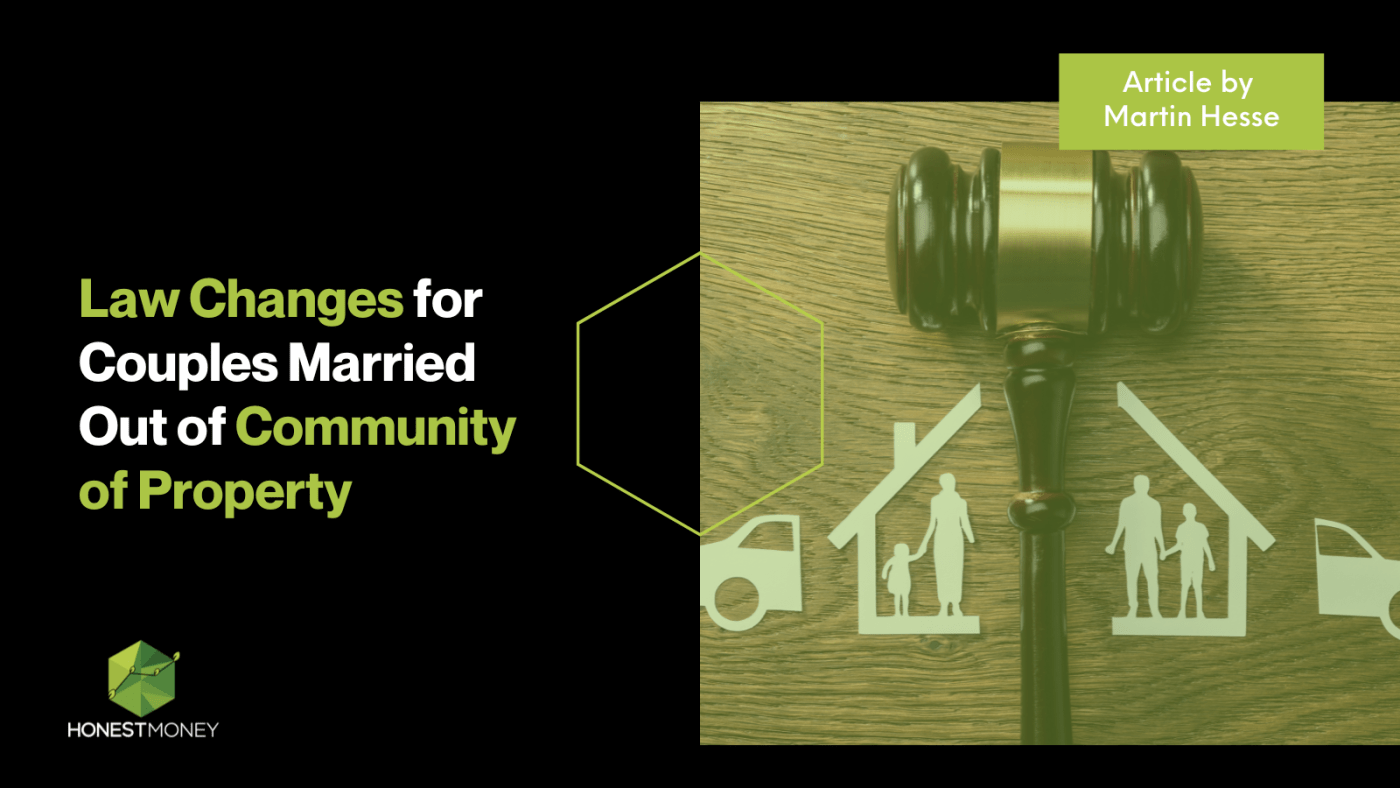Law Changes for Couples Married Out of Community of Property

A bill recently tabled in Parliament will bring statutory law in line with a 2023 Constitutional Court judgment that overturned existing legal practice regarding the distribution of assets when a marriage is dissolved on divorce or death.
In short, the General (Family) Laws Amendment Bill aims to ensure a fair distribution of assets between parties in a divorce or on the death of a spouse in cases where the couple was married out of community of property.
An introductory summary of the bill says it will amend three Acts, as follows:
• The Matrimonial Property Act of 1984, to provide for the distribution of matrimonial property of a marriage out of community of property on the dissolution of the marriage by death;
• The Divorce Act of 1979, to provide for the transfer of assets by a court granting a decree of divorce in respect of a marriage out of community of property regardless of when the marriage was entered into; and
• The Mediation in Certain Divorce Matters Act of 1987, to provide for the functions of the Office of the Family Advocate … and for matters connected therewith.
Until the Constitutional Court decided otherwise, couples married out of community of property without accrual after 1984, when the Matrimonial Property Act introduced the accrual system, were bound by their antenuptial contract separating their estates. This often resulted in an unfair outcome for a spouse, usually the wife, who was not compensated for non-financial contributions to the marriage. The issue did not affect couples married out of community of property before 1984, where a spouse could seek a redistribution order.
Landmark judgment
In May 2022, the Gauteng High Court in Pretoria, in the case EB v ER and Another, declared parts of the Divorce Act unconstitutional in that it did not allow for a court to make a redistribution order in the case of non-financial contributions to a marriage entered into after 1984.
A legal team representing the estranged wife of a wealthy wine farmer argued that the court needed to consider whether she had contributed to the growth of her husband’s estate during the marriage in non-financial ways. The wife had been forced into signing an antenuptial contract to be married out of community of property excluding accrual, saying she had been pressured to sign the contract by her husband’s family. She argued that, over almost 30 years of marriage, she had significantly contributed to the maintenance and growth of her husband’s estate and assets while looking after the children and working on the farm.
The High Court’s decision to allow for a redistribution order to compensate the wife was upheld in October 2023 by the Constitutional Court, which ordered that the Divorce Act be amended. The apex court also held that a similar avenue for compensation should be available on the death of a spouse.
Legal opinion
In a blog for law firm STBB, Dr Samantha Smith says that, in the context of divorce, the Bill responds to the Constitutional Court’s finding that the redistribution remedy in the Divorce Act is too narrowly applied, “much to the detriment of vulnerable spouses”.
Smith writes: “Critically, it broadens the scope of redistribution for marriages out of community of property in two vital ways. First, it removes the current restriction that limits redistribution to marriages concluded before the Matrimonial Property Act came into force. Second, it extends the remedy to include marriages out of community of property that terminate through death. Further, the bill proposes that a spouse’s pension interests [his or her retirement fund assets] be included when calculating the patrimonial benefits in all marriages out of community of property.”
She says the bill also expands the scope of the Office of the Family Advocate to unmarried parents and parents not planning to divorce in settling disputes around parental rights and duties.
“Evaluated together, these proposed reforms align South Africa’s family law framework with constitutional principles and expand the protective reach of key provisions to safeguard the interests of vulnerable spouses and children,” Smith says.
A copy of the Bill can be found on the websites of the Parliamentary Monitoring Group and the Department of Justice and Constitutional Development.
Author
-

Martin is the former editor of Personal Finance weekend newspaper supplement and quarterly magazine. He now writes in a freelance capacity, focusing on educating consumers about managing their money
View all posts


